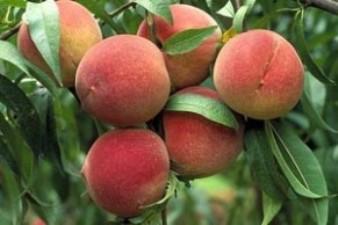
Section Branding
Header Content
Native Workers May Not Ease Labor Shortages
Primary Content

Governor Nathan Deal says labor shortages at some South Georgia farms could provide jobs for the unemployed. But agriculture and labor experts say harvesting jobs typically don’t appeal to many native-born workers.
The reported labor shortages come as some farmers say fewer migrant laborers are picking onions, peaches and other crops this spring.
They say workers fear the new immigration law. Among other provisions, it will require many businesses to verify employees can work here legally.
Farmers need workers now to pick some of the state’s top crops. But experts say there might not be enough local workers willing to endure farm job conditions.
John McKissick is an agricultural economist at the University of Georgia. He said several factors may limit the number of native workers who apply and keep farm jobs.
“We’re talking about small geographic areas and the availability of workers for that short duration, for that specific kind of job, and then we’re also talking about that it really is just a part-time situation,” he said.
McKissick said every effort should be made to pair unemployed workers with vacant harvesting jobs. Indeed State agriculture commissioner Gary Black said he is working with the department of labor to facilitate that.
But McKissick said the migrant workers are skilled at harvesting a variety of crops, and they often move from place to place, as crops ripen across the state. That's not something many people in the native-born workforce want to do.
“Oftentimes it’s simply the nature of the work, and the short period of time and duration, that most people are not really interested in that sort of part-time work that are local,” he said.
Wages play a role. At a press conference last week to announce a class action lawsuit against the new immigration law, labor union officials said immigrants are not taking American jobs.
Ben Speight is an official with Teamsters Local 728.
"Not a single undocumented worker has taken a single Teamster job in this state," he told reporters. "Because the fact is undocumented workers do work that most of us don't want to do, at wages we refuse to accept."
He added, "They are hyper-exploited under labor laws that don't protect them."
It remains unclear how extensive the labor shortages are. Some smaller farmers have been able to hire several dozen workers for harvesting jobs. But agriculture experts say native-born workers don't always last. They also don't pick as efficiently as migrant workers who are accustomed to the work. And a part of workers' wages depend on how quickly they are able to harvest the crops.
Gov. Deal has asked the department of agriculture to deliver a report on the labor shortages by Friday.
Some provisions of the immigration law go into effect on July 1.
Tags: immigration law, HB 87, bonner, migrant laborers, labor shortages
Bottom Content

